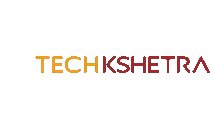Online vs Paper-Based Assessments: Tackling Security Concerns
Published: SEPT 17, 2024

In today’s fast-paced educational and corporate environments, the integrity of
assessments—whether conducted digitally or on paper—is paramount. Each method comes with its own set
of security challenges, demanding tailored solutions to ensure reliable and trustworthy evaluations.
By understanding these concerns and applying the right strategies, organizations can protect the
credibility of their examination processes.
Security Challenges in Online Assessments
Cyber Threats: Online assessment platforms are vulnerable to cyber-attacks such as hacking and data breaches, potentially compromising the confidentiality of exam content and results.
Unauthorized Access: Risks such as unauthorized logins or account sharing can jeopardize the authenticity of online exams and threaten fair assessment practices.
Cheating and Plagiarism: The virtual nature of online assessments can provide opportunities for dishonest practices such as the use of external resources or unauthorized collaboration.
Data Privacy: Protecting personal information and assessment data requires advanced security measures to ensure they are not exposed to malicious actors.
Effective Solutions for Online Assessment Security
Advanced Encryption: Secure encryption protocols protect sensitive data during transmission and storage, safeguarding it from unauthorized access and breaches.
Multi-Factor Authentication: Adding an extra layer of security through multi-factor authentication reduces the risk of unauthorized access by requiring multiple verification steps.
Proctoring Technologies: Online proctoring tools, including AI-powered monitoring, help prevent cheating by detecting suspicious behaviors in real-time.
Security Audits: Regular security assessments of online platforms help identify vulnerabilities and ensure that proper measures are in place to maintain security standards.
Security Challenges in Paper-Based Examinations
Exam Paper Theft: Physical theft of examination papers poses a significant threat as stolen content can undermine the credibility of the test.
Forgery and Impersonation: Traditional exams are vulnerable to fraudulent activities, such as impersonation, where someone else may take the exam for the intended candidate.
Secure Storage: Without proper storage solutions, exam papers and answer sheets can be tampered with, affecting the fairness of the process.
Distribution Risks: Inadequate handling of exam papers during transportation or distribution can lead to unauthorized access, leaking critical information before exams.
Solutions for Paper-Based Examination Security
Secure Paper Handling: Implementing strict protocols for storing exam papers, including the use of locked storage and restricted access, minimizes the risk of theft.
Identity Verification: Rigorous identity checks at examination venues ensure that only authorized candidates are seated for the test, preventing impersonation.
Controlled Distribution: Establish secure chains of custody for the transportation and distribution of exam materials, ensuring they reach their destinations safely and without exposure.
Surveillance and Monitoring: Employing camera surveillance and invigilation during exams helps prevent cheating, ensuring that the assessment process remains fair and transparent.
Balancing Security in Assessments
Both online and paper-based assessments have their own set of security risks, but with the right measures in place, these can be effectively managed. Advanced technologies, robust protocols, and vigilant monitoring are essential to maintaining the integrity of the examination process. Whether your organization is leveraging digital platforms or traditional paper methods, enhancing assessment security is key to delivering trustworthy and reliable results.
.png)



